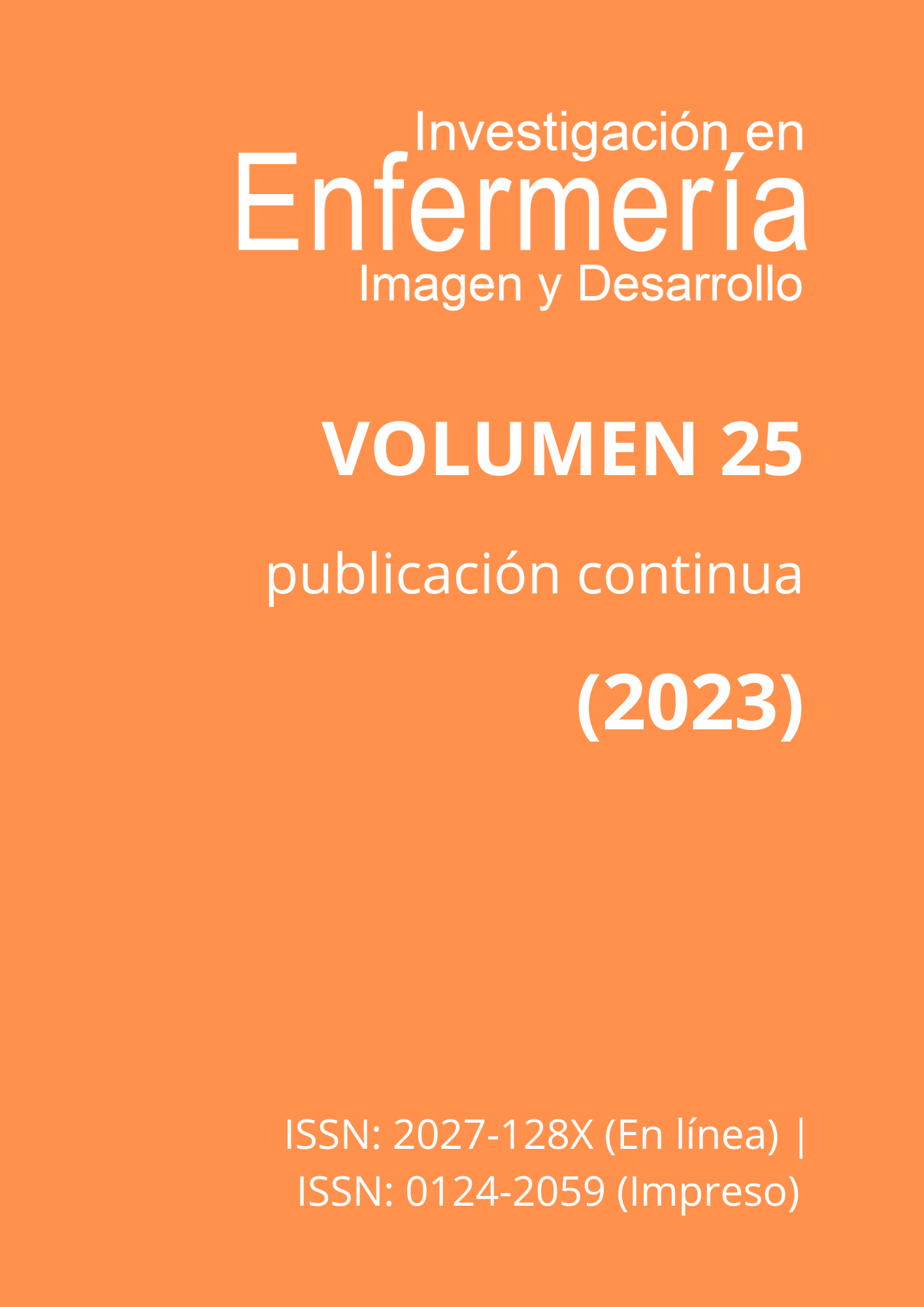Abstract
Abstract
For nursing professionals, the COVID-19 pandemic exacerbated the need to put care and self-care into practice as fundamental elements to protect their lives, that of their patients, relatives, and social health in general. Objective: To describe the self-care beliefs and practices used by nursing professionals who work in Intensive Care Units to maintain physical, mental, and social well-being during the care of the COVID-19 pandemic between the second period of 2020 and the first period of 2021. Methodology: Qualitative ethnographic approach, based on the ethno-nursing method proposed by Madeleine Leininger. Sampling by theoretical saturation of 14 key informants was carried out. Collection of information was doner through semi-structured face-to-face and virtual interviews, recorded, fully transcribed, and field notes. Analysis of information through the phases of ethno-nursing, categorization, characterization and identification of recurring patterns. Results: Three categories were identified as main themes, information was obtained on the beliefs and self-care practices of nursing professionals during the COVID-19 pandemic that have repercussions on the search for individual and collective well-being, recognizable through the implementation of different strategies of protection and associated cultural practices. Conclusion: The thoughts and consequent actions mentioned by the interviewed population respond directly to the practices and beliefs related to their intentions to reduce the probability of contagion and manage self-care in the construction of resilience and effective well-being of health professionals nursing.

This work is licensed under a Creative Commons Attribution 4.0 International License.
Copyright (c) 2023 Investigación en Enfermería Imagen y Desarrollo


